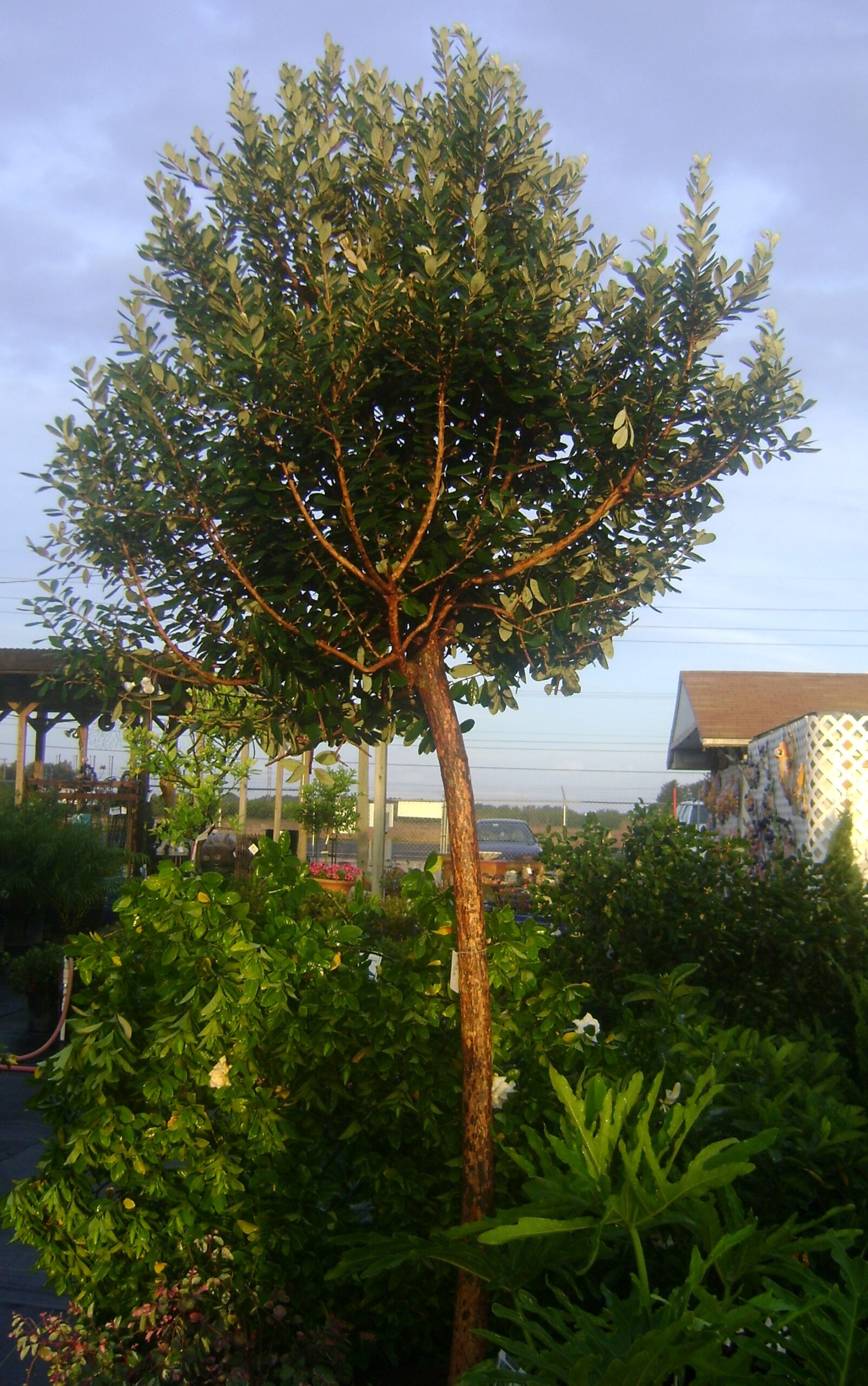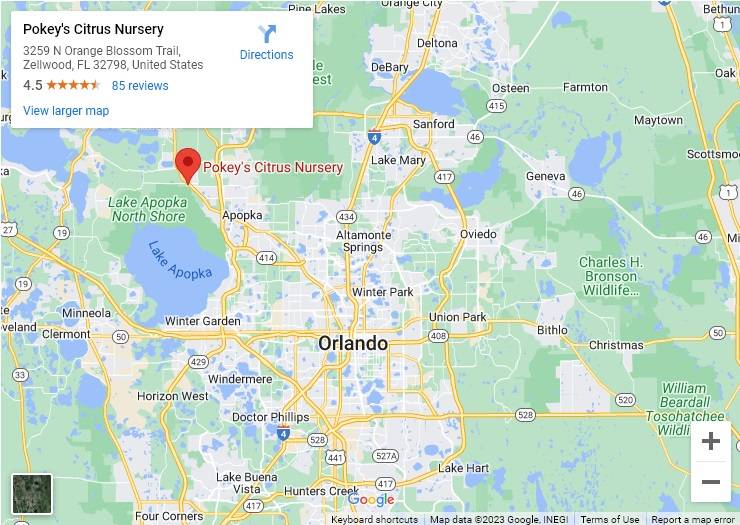Asian guava is a hardy tree or spreading shrub that grows vigorously in the Orlando home garden. This evergreen tropical has attractive foliage, visually interesting bark and produces delicious fruit year-round.
Asian guava is a single or multi-trunked tree that grows rapidly in the warm and humid Orlando climate. The trunks are jointed and often have an eye-catching “bony” appearance. The copper colored bark peels away in strips to reveal the bright green mottling beneath. The leaves are dark green, long, oval, leathery above and lightly furred below. The flowers of the Asian guava are white, up to one inch in diameter and sweetly scented. The fruit is round to oval with a greenish or yellow rind. The white flesh is crisp and apple-like when freshly picked but will soften and sweeten when left at room temperature for three to five days. Ripening fruit produces a distinctive, musky odor.
Asian guava can reach heights of up to 20 feet if allowed to grow naturally, but can be kept to sizes ranging between three to six feet with careful pruning. Several guava trees planted in rows create a natural green fence, and cross-pollination between specimens will increase fruit yields on all the trees. Guavas typically bear fruit in the third to fourth year after planting and tipping to force new growth will often spur fruit production.
Choose a sunny location with plenty of room to plant your Asian guava. Although they can withstand occasional flooding, overwatering will result in decline. Drought tolerant, the guava benefits from timely soakings if dry periods occur while fruit is setting. Asian guava prefers well-drained soils, and sandy soils should not be amended before planting. Guava trees are susceptible to injury from mowers and regular lawn irrigation can lead to root rot. For best results, clear a three-foot area of bare earth beneath your guava trees.
A single ripe guava contains four times the vitamin C of an orange and is rich in vitamin A and dietary fiber. Use guavas in fruit salads, eat them freshly plucked from the tree or juice them to produce a refreshing nectar.



